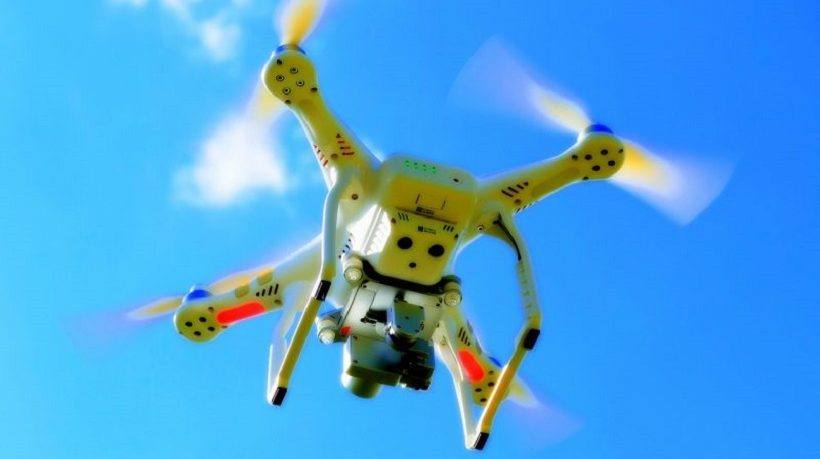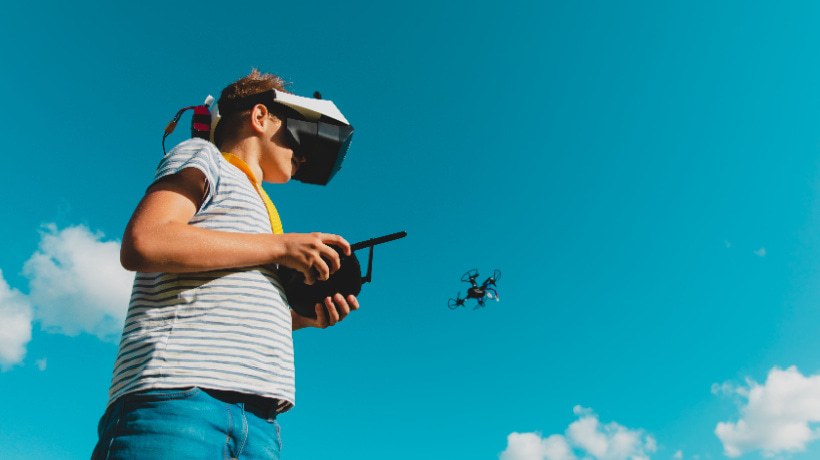Cherishing Students' Passion For Technology: Using Drones In The Classroom
Mobile devices may have enabled the breakthrough of disruptive technology in modern classroom, but new gadgets keep enriching the possibilities to engage students in more interactive classes. Alongside smartphones and tablets, a number of new devices have entered a classroom – from smart boards to VR headsets, a wide range of tech inventions have helped reinvent traditional teaching methods. Among the latest tech trends, the use of drones has become a widespread among photographers, journalists, farmers, police officers and many others. For teachers, using drones in the classroom open up a new set of opportunities to make classes more relevant and engaging for students.
Their benefits have been highlighted by numerous education experts, who have made the use of drones a part of their curricula. In an earlier article by Leticia Lafuente López, drones are mentioned as a new and an important step towards introducing technology in classroom. Together with similar gadgets, they have given teachers the opportunity to use these rather simple and affordable tools to teach children verbal skills, languages and even math.
However, drones can be used to help enhance orientation skills, motor skills, and even give students a better understanding of how the world around us works. The advantage is that they do not necessarily cost a lot, while their potential is significant. Simple quadcopters can cost as low as 30 dollars, and up to 100 dollars, which is a small price for numerous benefits the whole class can experience.
Contrary to the belief that such technology can be distracting for students, it can in fact enrich their imagination and get them more involved into the learning process. Drones will awake the students’ natural curiosity and take it to the next level.
How can drones be integrated into your curriculum?
1. Use Drones For Speaking And Writing Exercises
With the coming of drones, no space is now unreachable to the human eye. The ability of drones to reach areas we wouldn’t be otherwise able to see can be a great source of inspiration for writing exercises. Go out with you class and photograph some beautiful scenery and later have the kids describe it, or make up a story taking place at the scenes you photographed.
You can also take pictures of familiar areas, such as school grounds but from different angles, so that the students wouldn’t be able to recognize them instantly. Then, organize a speaking exercise and let the students make their guesses as to where the pictures were taken by using visual clues in the images.
2. Use Drones To Teach Math
Math can be quite challenging to teach, especially to the students that have not developed interest for it. The lack of application in practice is what makes math so abstract to students, and thus engagement can be reduced to a minimum. In her book How Children Learn Stella Vosniadou tackles the issue of students’ active involvement
“Teachers must help students to become active and goal-oriented by building on their natural desire to explore, to understand new things and to master them.”
Students will retain information better if they can apply them in the real world. Thus using drones to teach proportional relationships, for example, will give students a new perspective and an opportunity to see math at work, and as a consequence, become more involved and interested. We can see a great example of how drones can be used to teach math in this video from Thai-Chinese International School. The students were observing drone’s movements and were given the task to illustrate its path with a distance and time graph.
3. Use Drones To Develop Children Motor Skills And Hand-Eye Coordination
Developing motor skills and hand-eye coordination is a crucial part of the child’s development. It influences many other skills such as reading, writing, balance, sense of direction and other fine motor skills. It is important to practice those skills and drones are a fun way to do so. Flying drones requires excellent hand-eye coordination, as children need to use visual cues and be aware of the special relations so that they could use their hands to control its path and destination. There are many excellent drones for kids, that are both fun and safe, that can spark their interest at this stage of development while they practice coordination skills at the same time.
4. Use Drones In PE (Physical Education) Class
According to the CDS data, the number of children with obesity in the USA has tripled since the 1970s, and the numbers are increasing in Europe as well. Another worrying fact is that children spend seven and a half hours staring at screens, as reported by President's Council on Fitness, Sports & Nutrition. It is of crucial importance to engage children in more physical activities, and drones are the perfect tool to get them outside and get them interested in outdoor activities. During a PE class, you can use the drone to record children play certain sport and later analyze what they can do to improve their moves. Another creative use of drones for physical activity is to play hide-and-seek. Instruct the children to go and hide while you try to find them with the help of the drone. It will be equally amusing and beneficial for their health.
5. Use Drones To Teach Science
There are many creative ways you can use drones to teach science and demonstrate some abstract notions to students to help them have a better understanding. You can use drones to help them understand cell structure by making a large scale model and then zoom in and out to show individual parts and the larger structure. Laws of physics can also be taught with the help of drones – you can get students to calculate how long it will take the drone to cross a certain distance, or how the wind influences drone’s path. Options are numerous, and can bring a lot of fun into science classes.
Technology is creeping its way into every aspect of human life, and education is not an exception. Yet, incorporating technology in education can bring a new perspective into education and motivate children to put their curiosity into good use.









